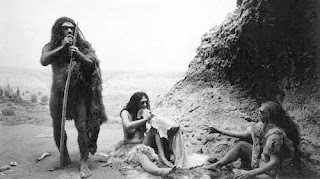Perfection. Is it achievable? Or is the whole world striving to
acquire an impractical score?
acquire an impractical score?
 Since the first morning of our world, humanity has desired to be perfect. We invent --we innovate--, thinking at one point we will be satisfied with our achievements. Yet we were not satisfied with the wheel, or the discovery of electricity. We keep on striving for the next best thing.
Since the first morning of our world, humanity has desired to be perfect. We invent --we innovate--, thinking at one point we will be satisfied with our achievements. Yet we were not satisfied with the wheel, or the discovery of electricity. We keep on striving for the next best thing.
Now, don't get me wrong, the power to create our future is an ingenious and valuable quality. Though humanity has reached the point where the goal to improve our lives does not only envelop the objects we invent, but the looks we invent for ourselves.
Our world has created a new, popular industry. The Modeling Industry. We started with Adam and Eve draping themselves with vines and have now evolved into clothing ourselves in every fabric known to man. Not only does the fabric matter, yet the stitching and design as well. Humanity has always had a slight obsession over the image they present, but we have now created an industry that doesn't just sell clothes, but also tells the public how they should look.
 |
| - Anna J. - |
To the left is young Anna J. She is part of a top modeling company that has been titled as: Ford Models. Her images have been sold towards the entertainment of the fashion world, and the education of the public. On the website for Ford Models, her employers kindly give us the following information:
Height Measurements
Bust Size
Waist Size
Hips Measurements
Dress Size
Shoe Size
Hair Color
Eye Color
Now, why would we want to know this information in the first place? It is purely because the world has created an impossible image for girls to achieve. The first ten of Ford's models possess a waist size of about 24 (with an exception of one model with a waist size 23, and another with a size 25). To live up to this image is every girl's dream. Many teenagers assume that if they were "skinnier" that would bring them to be prettier. Websites such as FindYourTrueBeauty.com talk about how teenage girls' "self-esteem begins to hinge on how they look and what they weigh". The website also talks of how the constant obsession of your image can often lead to eating disorders --such as anorexia-- and other
psychological problems in teens' lives.
 |
| Betsey Johnson ~ Spring Collection 2009 |
Although, the fashion industry has also given some positive effects to the world. Fashion gives people the opportunity to express ourselves in copious ways.
Such "fashionistas" as Betsey Johnson use their talents to show off their true colors through their designs. Betsey claims: "I love my work" and encourages all girls to express themselves through fashion.
"A perfection of means, and confusion of aims,
seems to be our main problem."
-Albert Einstein-
Does the fashion industry gift us with the freedom of expression? Or does the reoccurring image of an unattainable figure constrain its viewers from ever expressing their true selves?


















